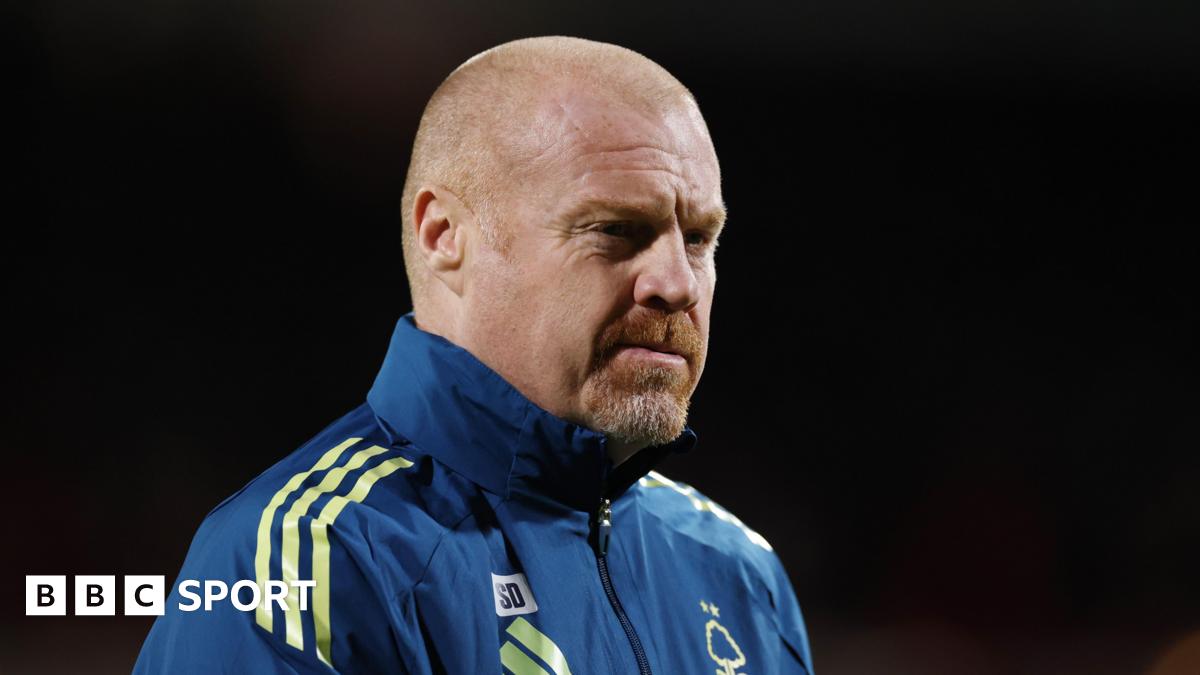Nottingham Forest FA Cup exit: Boss Sean Dyche rages over ‘unacceptable’ first half at Wrexham
Sean Dyche has called for some of his Nottingham Forest players to “have a look in the mirror” after an “unacceptable” first-half performance in their FA Cup loss at Wrexham.
Forest were the first Premier League side in third-round action and the first casualty at the hands of lower league opposition.
Having made eight changes from Tuesday’s Premier League win at West Ham, Dyche watched in fury as his side trailed their Championship opponents 2-0 at the break.
They fought back to make it 3-3 and force extra-time at Stok Cae Ras, but were beaten 4-3 in the penalty shootout after Igor Jesus and Omari Hutchinson had their spot-kicks saved by home keeper Arthur Okonkwo.
“The first half was completely unacceptable,” Dyche told TNT Sports.
“I let the players know and there are certain individuals that certainly know and they have to look in the mirror.
“But the strangeness of football, some players that came on in the second half were a credit and we went on and looked like a Premier League side.
“You can’t do that in the first half, it’s completely unacceptable. It’s unacceptable to me, but I said you have to look in the mirror because that’s unacceptable to the badge as well.
“They all knock on the door and say, ‘why aren’t I playing?’. Well the evidence is quite honestly there for some, not for all.”
While Dyche praised those who came off the bench – including two-goal Callum Hudson-Odoi – for acting as a “catalyst” for their second-half comeback, he continued to berate his side’s efforts in a poor first 45 minutes.
“I could have taken all of them off [at half-time],” he added. “The tempo, the mentality to take the game on was lacking so badly in the first half.
“Slow, methodical, we have done a lot of work on that. There was basically no intent, no real desire to make a difference. Second half, the changes were terrific.
“The facts of the matter are we’ve got to make changes. They showed their hand and won’t be knocking on my door saying, ‘why aren’t I playing?’ again, that’s for sure, that first-half group.”
